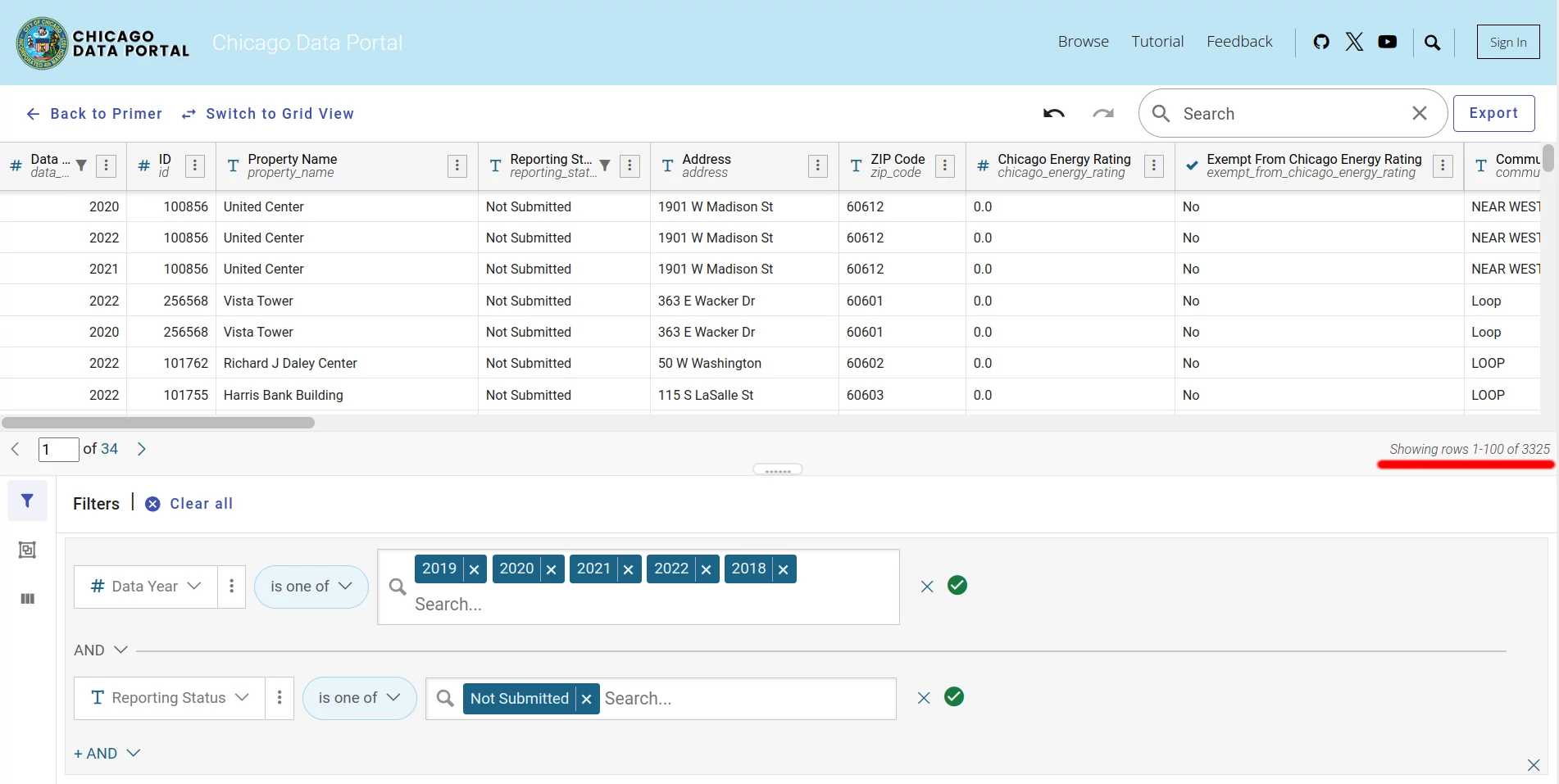City Of Chicago Failed to Collect $30 Million In Potential Fines from Building Benchmarking Ordinance
Not Enforcing The Benchmarking Ordinance's Fines From 2018 - 2022 Reduced Accountability & Transparency
Electrify Chicago has analyzed the last five years of city benchmark data, and found
3,325 instances of building owners not submitting data. Based on the
latest (2024) official notification letter fines for non-compliance could total up to $9,200 per year.

A screenshot of the energy benchmarking notification letter's section on fines, as of
Feb. 2024 (source )
With a maximum of $9,200 of fines multiplied by 3,325 instances of non-compliance
(source - City of Chicago data portal ), that
means a whopping $30,590,000 dollars of fines could have been collected
by the city's commissioner of business affairs and consumer protection (who is given this
responsibility in the
original ordinance).


The full data portal screenshot, and a zoomed in view of the query result count (source )
Through a FOIA request, the city reported that they had no recorded instances of enforcement. We believe it's extremely unlikely the city levied and then collected fines without any record, and thus believe that no fines were levied in this time.
Why This Matters
Without consequences for non-reporting, building owners who perform poorly can simply opt
out of reporting their data. Some owners of very large and culturally significant buildings
have consistently not submitted. As an example, view
2023's largest non reporting buildings in the data portal . Not having all building owners report means the goals of the ordinance aren't being
met, and the public loses out on valuable information for buildings that could be emitting
the most or be the least efficient.
Next Steps
An older version of the energy benchmarking notification (source - WayBackMachine )
did not contain any information of potential fines, and just this recent update to make
sure building owners are aware of the consequences for not reporting should improve
reporting. However we believe it is crucial the city then follow through and fine any
owners who choose to ignore repeated requests to report their energy use, in keeping
with the original ordinance. We also believe that larger fines may be necessary to get the
owners of very large and inefficient buildings to report their emissions, who may want to
obscure their pollution from the public.
Questions?
Contact the lead developer on this site, Viktor Köves, by emailing contact@viktorkoves.com